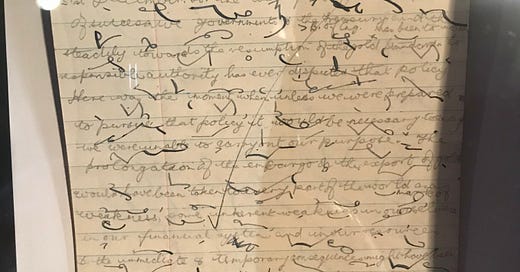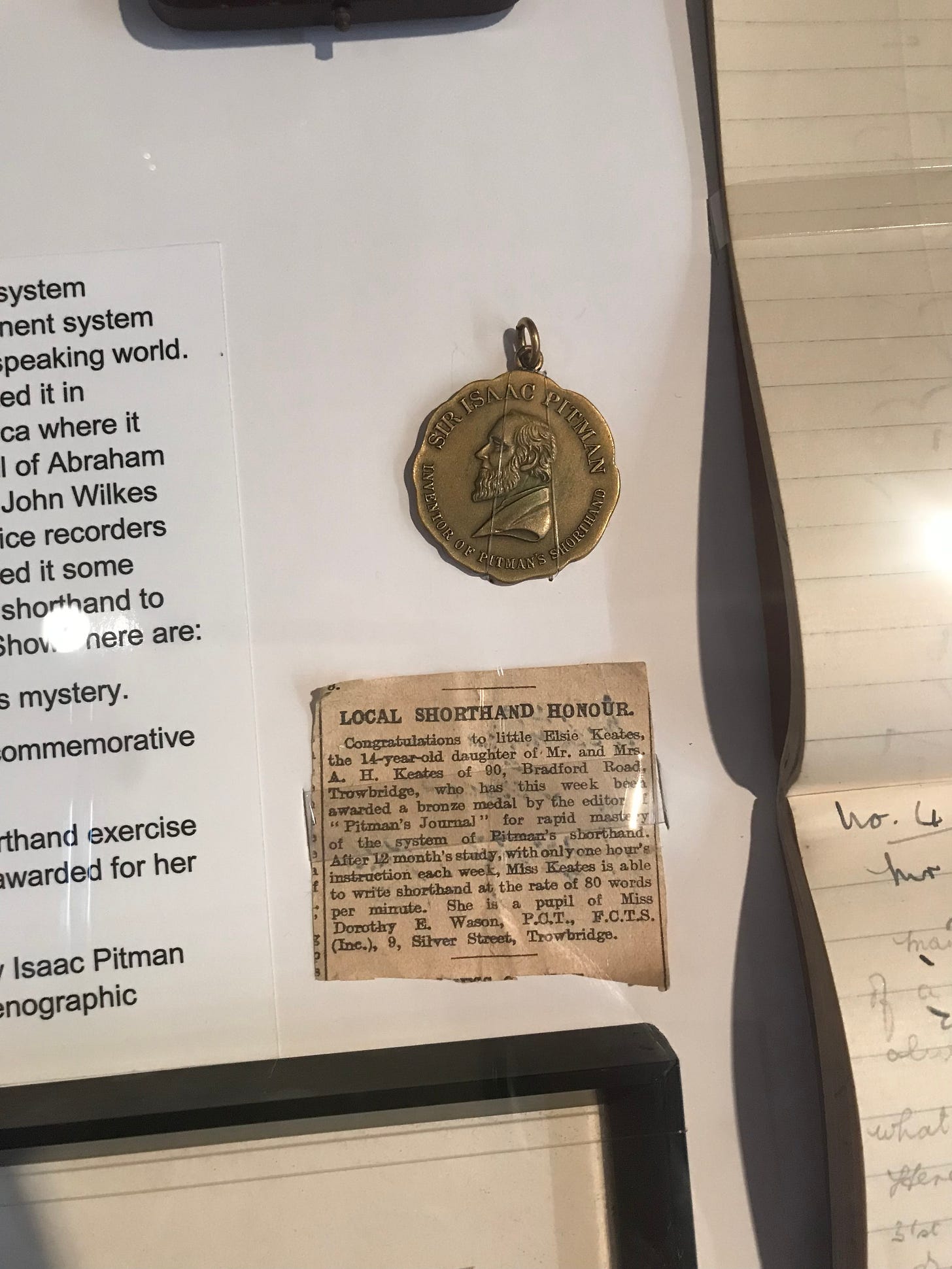In recent articles, I have featured the town where I live, Trowbridge. Last week I wrote about Thomas Helliker, a young man who was hanged for a crime many believe he did not commit.
Here I write about a man who helped millions write quickly and accurately. Journalists and secretaries have learned the system that this man invented. He is Sir Isaac Pitman, the inventor of what is known as Pitman Shorthand.
Isaac Pitman was born in Trowbridge on April 4th 1813. We don’t know how long he lived in Trowbridge. In memory of his achievement, there are a couple of places bearing his name, Pitman Mews and Pitman Avenue.
In 1831 he trained as a teacher and started his teaching career in Lincolnshire. In 1835 he married a widow and, in 1836, moved to the Gloucestershire town of Wootton-under-Edge. Pitman began his own school, showing his genuine love for what he was doing and his entrepreneurial spirit.
In 1839 he moved to Bath and opened a small school. The city today has many private schools, and Sir Isaac was one of the early pioneers of this trend. The 1851 census shows him living in Bath, age 38, with his wife Mary, 20 years his senior. Mary died, and he remarried in 1861 to Isabella Masters. The 1871 census records Pitman at age 58 and his wife at 46.
Sir Isaac Pitman advocated spelling reform. Looking back at older writings of the period, we can see that many words today have fewer letters and are somewhat simplified from the writing back in the mid-1800s and earlier. He had the motto, “time saved is life gained”, which is probably one we can all concur with. With his interest in spelling, he created a phonetic way of writing, using lines to represent sounds. (see the photo above). He published a pamphlet in 1837 with the title, “Sound-Hand”. In 1844 he published Phonotypy, his major work on spelling reform. In 1845 he published the first version of the English Phonotypic Alphabet.
Isaac Pitman - The Entrepreneur
Ever the entrepreneur, Pitman built a printing, compositing and binding business, which became very successful. The business became one of the world’s leading educational publishers. With the need to teach people shorthand, he also grew a substantial educational business with his sons that still exists today. He can be credited with starting the first distance learning in the world. Many referred to these as ‘correspondence courses’. Pitman took advantage of the new penny post in 1840, giving a uniform cost of postage throughout the United Kingdom, something still enjoyed today.
Pitman’s publishing business was sold to Pearson Plc in 1985, JHP Training was sold, and his now Learndirect. Pitman Training lives on and still has the descendants of Sir Isaac working within the company. A business to survive from 1837 to this day is quite a feat for a family business. This training company teaches students more than shorthand and has a wide range of subjects.
Another notable feature of his life was that from 1837 he became a vegetarian and did not drink alcohol and also did not smoke. This lifestyle, he claimed, helped him to have good health and to be able to work long hours that he put into his business. Who are we to disagree with that statement? He became vice-president of the Vegetarian Society.
Arise, Sir Isaac Pitman
Pitman received his Knighthood from Queen Victoria in 1894. He died on January 22nd 1897.
A plaque in Bath Abbey says, “His aims were steadfast, his mind original, his work prodigious, the achievement world-wide. His life was ordered in service to God and duty to man.”
Sir Isaac Pitman’s shorthand revolutionised the office, as secretaries could now take notes in real-time, and with the growth in the use of the typewriter, send out letters more speedily just as the inventor wanted. “Time saved is life gained!”
He also made it easier for newspaper reporters to accurately record interviews and announcements using Pitman’s shorthand. Perhaps more has been achieved because of this clever way of recording words in phonetic strokes than we can ever give credit for?
Thank you for reading this article. If you’re not a subscriber, please do click the button, and every time a new article is published you will be able to read it in your inbox or the Substack app.
If you would like to make a donation to support this blog you can do so through Buy Me a Coffee and help put some petrol in the car!







